Filter by
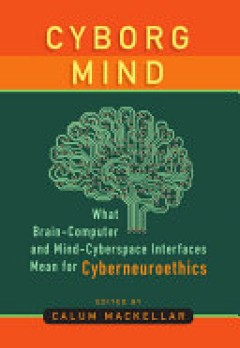
Cyborg Mind
Should people hardwire computers into their brains, enabling their minds to directly access cyberspace? What advantages and risks would this represent? Would this create a new humanity? These questions have been considered and discussed in science fiction for decades, but technology is beginning to make such developments seem remarkably plausible. This book examines what is currently taking pla…
- Edition
- -
- ISBN/ISSN
- 9781789200140
- Collation
- vii, 251 p
- Series Title
- -
- Call Number
- 612. 80285 CAL c
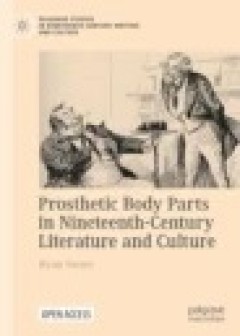
Prosthetic Body Parts in Nineteenth-Century Literature and Culture
This open access book investigates imaginaries of artificial limbs, eyes, hair, and teeth in British and American literary and cultural sources from the nineteenth and early twentieth century. Prosthetic Body Parts in Nineteenth-Century Literature and Culture shows how depictions of prostheses complicated the contemporary bodily status quo, which increasingly demanded an appearance of physical …
- Edition
- -
- ISBN/ISSN
- 9783030785895
- Collation
- xv, 283p. : ill.
- Series Title
- -
- Call Number
- 810.93561 SWE p
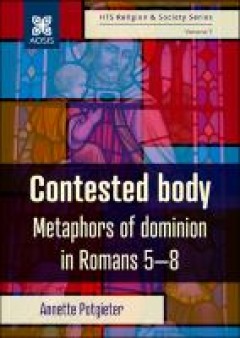
Contested Body; Metaphors Of Dominion in Romans 5-8
Within the plenitude of Pauline studies, Contested body: Metaphors of dominion in Romans 5–8 provides a cohesive scholarly investigation into metaphors of dominion employed by Paul. This book advances the understanding that the body is the specific space where forces vie in Romans 5-8.
- Edition
- -
- ISBN/ISSN
- 9781928523680
- Collation
- -
- Series Title
- -
- Call Number
- -
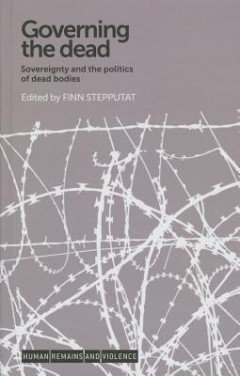
Governing the dead : sovereignty and the politics of dead bodies
This book looks at sovereignty as a particular form of power and politics. It shows that the fate of bodies in the transition from life to death can provide a key to understanding fundamental ways in which sovereignty is claimed and performed. The contributions analyse (post-)conflict as well as non-conflict contexts, which too often are studied in isolation from one another. Focusing on contem…
- Edition
- -
- ISBN/ISSN
- 9781526151599
- Collation
- xiv; 274p,
- Series Title
- -
- Call Number
- 306.9 GOV F

Governing the dead : sovereignty and the politics of dead bodies
This book looks at sovereignty as a particular form of power and politics. It shows that the fate of bodies in the transition from life to death can provide a key to understanding fundamental ways in which sovereignty is claimed and performed. The contributions analyse (post-)conflict as well as non-conflict contexts, which too often are studied in isolation from one another. Focusing on contem…
- Edition
- -
- ISBN/ISSN
- 9781526151599
- Collation
- xiv; 274p,
- Series Title
- -
- Call Number
- 306.9 GOV F
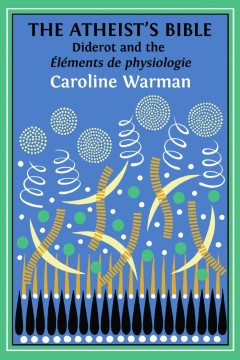
The atheist's bible : diderot's "Éléments de physiologie"
‘Love is harder to explain than hunger, for a piece of fruit does not feel the desire to be eaten’: Denis Diderot’s Éléments de physiologie presents a world in flux, turning on the relationship between man, matter and mind. In this late work, Diderot delves playfully into the relationship between bodily sensation, emotion and perception, and asks his readers what it means to be human in…
- Edition
- -
- ISBN/ISSN
- 9781783748983
- Collation
- ix, 421p. : ill.
- Series Title
- -
- Call Number
- 146.3 WAR t
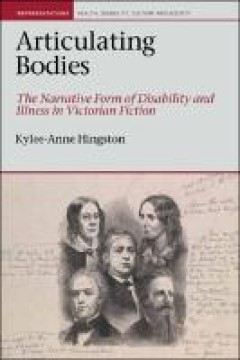
Articulating bodies : the narrative form of disability and illness in victori…
Articulating Bodies investigates the contemporaneous developments of Victorian fiction and disability’s medicalization by focusing on the intersection between narrative form and body. The book examines texts from across the century, from Frederic Shoberl’s 1833 English translation of Victor Hugo’s Notre-Dame de Paris to Arthur Conan Doyle’s Sherlock Holmes story “The Adventure of the …
- Edition
- -
- ISBN/ISSN
- 9781789624953
- Collation
- ix. ;232 p.
- Series Title
- -
- Call Number
- 823.8093561. KYL a
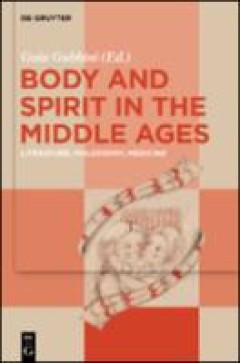
Body and spirit in the Middle Ages : literature, philosophy, medicine
A crucial question throughout the Middle Ages, the relationship between body and spirit cannot be understood without an interdisciplinary approach – combining literature, philosophy and medicine. Gathering contributions by leading international scholars from these disciplines, the collected volume explores themes such as lovesickness, the five senses, memory and passions, in order to shed new…
- Edition
- -
- ISBN/ISSN
- 9783110615937
- Collation
- vi, 290. : ill.
- Series Title
- -
- Call Number
- 128.20902 GUB b
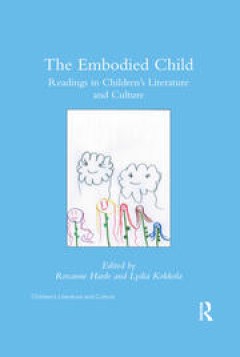
The embodied child : readings in children's literature and culture
The Embodied Child: Readings in Children’s Literature and Culture brings together essays that offer compelling analyses of children’s bodies as they read and are read, as they interact with literature and other cultural artifacts, and as they are constructed in literature and popular culture. The chapters examine the ideology behind the cultural constructions of the child’s body and the i…
- Edition
- -
- ISBN/ISSN
- 9781315101262
- Collation
- ix, 295 p. ; ill
- Series Title
- -
- Call Number
- 809.89282 ZIP t
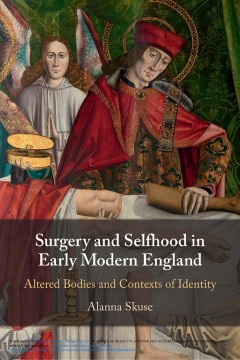
Surgery and selfhood in early modern England : altered bodies and contexts of…
Offering an innovative perspective on early modern debates concerning embodiment, Alanna Skuse examines diverse kinds of surgical alteration, from mastectomy to castration, and amputation to facial reconstruction. Body-altering surgeries had profound socio-economic and philosophical consequences. They reached beyond the physical self, and prompted early modern authors to develop searching quest…
- Edition
- -
- ISBN/ISSN
- 9781108919395
- Collation
- vii, 201p. : ill.
- Series Title
- -
- Call Number
- 617.094 SKU s
 Computer Science, Information & General Works
Computer Science, Information & General Works  Philosophy & Psychology
Philosophy & Psychology  Religion
Religion  Social Sciences
Social Sciences  Language
Language  Pure Science
Pure Science  Applied Sciences
Applied Sciences  Art & Recreation
Art & Recreation  Literature
Literature  History & Geography
History & Geography